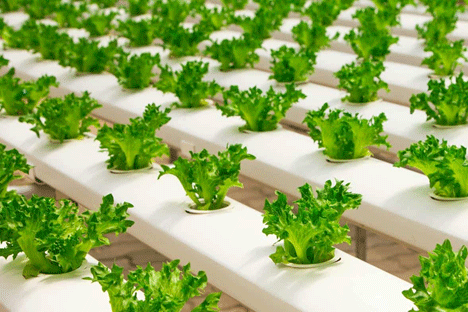The future of agriculture is happening now, and it’s taking place in the heart of Swedish supermarkets. SweGreen, an agricultural tech startup, is transforming the way consumers interact with their food by growing fresh vegetables in-store using artificial intelligence (AI) and hydroponic systems. This cutting-edge combination tackles key agricultural challenges, from water shortages and limited arable land to global food security concerns.
SweGreen’s hydroponic systems grow vegetables without soil, using rock wool plugs and a continuous flow of water to nourish plants. This method allows for efficient use of space and resources, enabling supermarkets to grow fresh produce such as lettuce, parsley, mint, and dill right on their premises. The result is a miniaturized urban farm that offers fresher, tastier vegetables with reduced environmental impact. Unlike traditional farming, which often relies on long supply chains, SweGreen’s approach cuts down on transportation emissions and prolongs the shelf life of the produce, reducing waste.
At the core of SweGreen’s innovation is its proprietary AI system. This technology assists store workers by providing detailed instructions on which crops to grow, factoring in variables such as seasonal demand, consumer preferences, and optimal growth cycles. As Sepehr Mousavi, the chief innovation officer at SweGreen, explains, “We have an AI tool that gives the recipe of growth to our growers, so that the people who work in the supermarket get a to-do list that secures them with exactly those products needed on that day.” The system is capable of growing up to 100 different crop varieties, and there are plans to expand into fruit-bearing plants such as strawberries.
This hyper-localized farming model offers several key advantages. First, it enhances transparency for consumers, allowing them to see exactly how and where their food is grown. This visibility fosters a deeper connection to the food they eat and increases trust in the freshness and quality of the produce. Second, the reduced need for transportation cuts carbon emissions, making this method a more sustainable alternative to traditional farming practices. Additionally, the hydroponic method requires significantly less water than soil-based agriculture, an important consideration given the increasing pressures on global water resources.
SweGreen’s platforms are versatile and scalable. Supermarkets can choose from larger platforms that occupy up to 45 square meters and can grow up to 300 crops daily, or smaller setups of 12 square meters capable of yielding 116 vegetables daily. This flexibility makes the system adaptable to a wide range of spaces, whether in large urban stores or smaller neighborhood markets.
Moreover, SweGreen’s solution is not just limited to supermarkets. Restaurants, universities, hotels, and property owners are beginning to explore how this technology can be integrated into their operations to provide fresh produce with minimal environmental impact. In recognition of its contributions to sustainability and innovation, SweGreen received the prestigious IKANO Sustainability Award in 2023.
SweGreen’s integration of AI and hydroponics in supermarkets is a groundbreaking solution that addresses some of the most pressing challenges in modern agriculture. By growing produce locally and sustainably, it reduces carbon footprints, extends the shelf life of vegetables, and offers fresher, more nutritious food to consumers. This innovative approach may very well be the future of urban farming, reshaping how food is produced and consumed in cities across the world.












